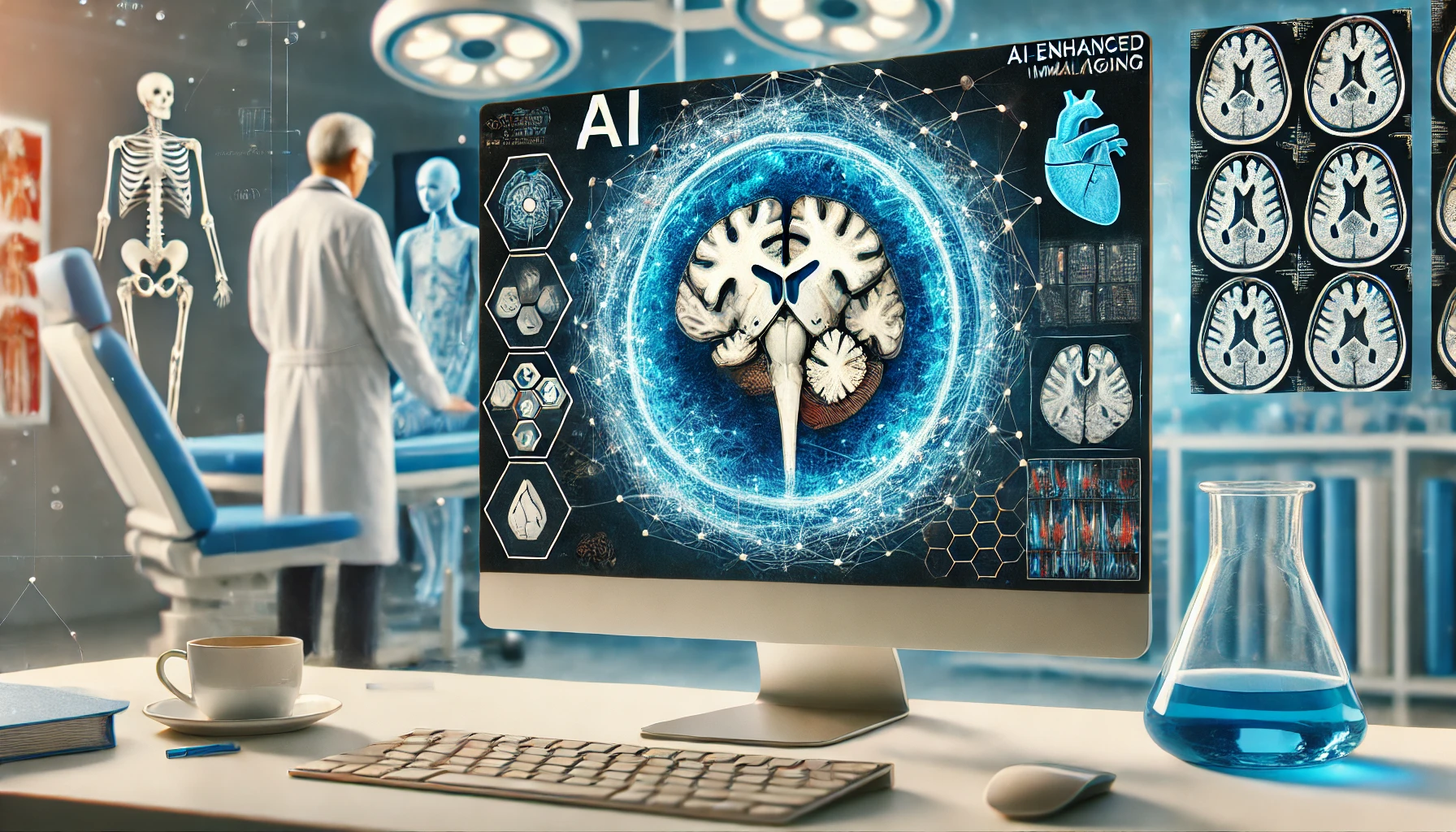Artificial Intelligence is making significant strides in medical imaging, enabling healthcare professionals to achieve earlier and more accurate diagnoses. By deploying sophisticated algorithms, AI has the power to process and enhance the clarity of medical images, which can detect abnormalities at much earlier stages, improve diagnostic accuracy, and potentially save lives.
How AI Algorithms Enhance Medical Imaging
AI algorithms can analyze vast amounts of image data with remarkable speed and precision, surpassing traditional imaging methods. These algorithms rely on deep learning models, specifically designed to recognize patterns in complex visual data, such as MRI, CT, and X-ray scans. Through continuous learning, the algorithms improve their accuracy over time, distinguishing between normal and abnormal structures with remarkable precision.
For example, AI algorithms are now capable of enhancing the resolution and contrast of images, making it easier to spot subtle irregularities that might have gone unnoticed with standard imaging techniques. This improvement in image quality can be crucial for diagnosing diseases like cancer, where early detection greatly increases the chances of successful treatment. AI’s ability to bring out more detail in images is revolutionizing fields like oncology, cardiology, and neurology, where even the smallest details can be essential for diagnosis.
Early and More Accurate Diagnoses
The enhanced clarity provided by AI-powered imaging can lead to more accurate diagnoses, as it allows radiologists to identify potential health issues with greater confidence. With high-quality images, doctors can make well-informed decisions faster, ultimately benefiting patient outcomes. For instance, by identifying tumors at an earlier stage, AI can significantly reduce the need for invasive biopsies and unnecessary follow-up scans, thus lowering patient stress and healthcare costs.
AI can also assist in monitoring disease progression. For example, in patients with chronic illnesses such as multiple sclerosis, AI can help track subtle changes in brain structure, ensuring that treatment is adjusted promptly. By providing real-time analysis of image data, AI empowers healthcare providers to respond more effectively to patient needs.
Transforming Medical Imaging Workflows
Beyond image enhancement, AI is transforming medical imaging workflows. Traditionally, radiologists and specialists spend hours examining and interpreting images, but with AI, many routine tasks can be automated, allowing clinicians to focus on complex cases. Automated algorithms can handle initial screenings, flagging suspicious areas for further review by specialists. This automation not only speeds up the diagnostic process but also helps address the shortage of radiologists in many regions.
AI’s impact on medical imaging workflow extends to reducing errors and inconsistencies. By standardizing imaging interpretation, AI ensures that patients receive consistent diagnoses, regardless of where they seek care. This consistency is vital for healthcare networks aiming to deliver high-quality care across multiple locations.
The Future of AI in Medical Imaging
As AI technology advances, the future of medical imaging looks promising. Research into AI-enhanced imaging continues to evolve, with new algorithms being developed to analyze different imaging modalities, such as ultrasound and mammography, with unprecedented detail. Future applications may also incorporate 3D modeling, where AI generates detailed three-dimensional reconstructions of organs and tissues, providing even more comprehensive diagnostic insights.
While AI is not a substitute for human expertise, it serves as a powerful tool that augments the capabilities of healthcare providers. AI allows radiologists and clinicians to deliver faster, more accurate diagnoses, resulting in better patient care. As the technology becomes more widely adopted, it could redefine the standard of care in medical imaging, making high-quality diagnostics accessible to more patients worldwide.
AI’s role in medical imaging is transformative, enhancing the clarity and detail of images, leading to earlier diagnoses, and improving treatment outcomes. The ability to detect diseases early and track disease progression accurately can potentially save lives, reduce healthcare costs, and create a more efficient diagnostic process. As AI continues to advance, it stands to reshape the future of medical imaging, empowering healthcare providers to offer a new level of precision and care for their patients.




